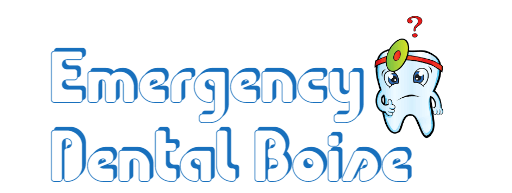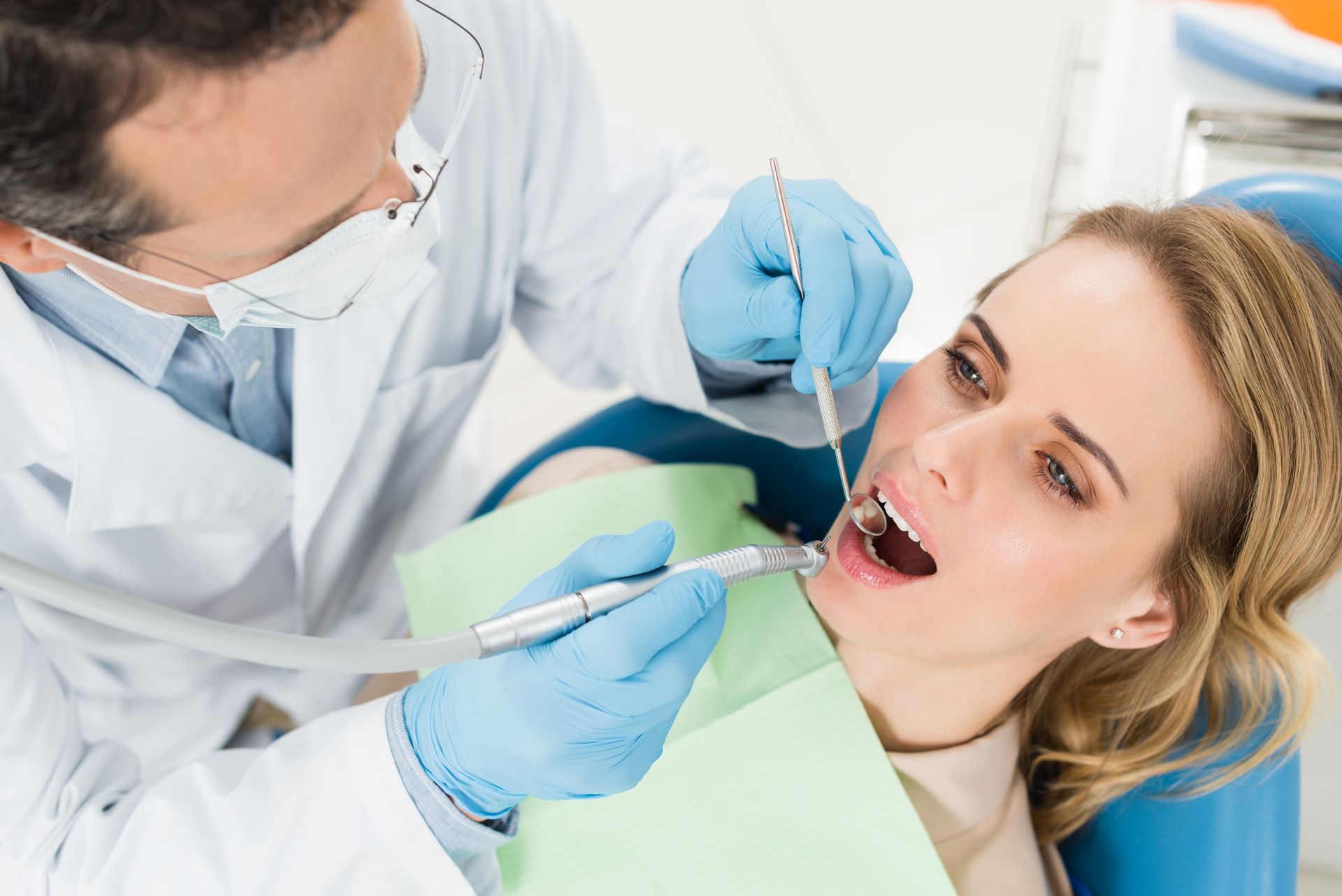Common Dental Problems and How to Keep Your Smile Healthy | Boise Dentist
What are the five most common dental problems?
John is a 40-year-old man who has been experiencing pain in his teeth for years. He visits the dentist regularly, but he still experiences discomfort and difficulty chewing. Emergency Dentist of Boise explores these conditions, providing insight into how they develop, their effects on oral health, and possible treatments.
Dental issues can range from mild to severe, affecting one or more teeth at once. Common complaints include cavities, gum disease, enamel erosion, temporomandibular joint disorder (TMJ), and abscesses.
Each of these conditions has unique characteristics and requires specialized treatment; however, understanding them as part of an overall plan for good oral hygiene is essential for maintaining healthy teeth and gums. By recognizing the signs and symptoms associated with each condition early on, individuals are able to take steps to prevent further damage and maintain optimal dental health.
1. Cavities
Cavities are a common dental problem that affects many individuals and is caused by bacteria in the mouth. The bacteria produce acid, which destroys tooth enamel, leading to holes or cavities in the teeth.
Cavities can cause pain, discoloration of the teeth, and increased sensitivity when consuming cold or hot foods and drinks. It is important to monitor cavity development, as it may lead to more serious problems if left untreated.
Dentists often use X-rays to identify any existing cavities. Treatment for cavities includes filling them with either amalgam (silver) fillings or composite (white/tooth coloured) fillings. In cases where a large portion of the tooth has been destroyed due to decay, root canal treatment might be required.
Regular brushing and flossing help prevent cavities from developing, as does visiting your dentist every 6 months for routine cleanings and checkups. Additionally, limiting sugary snacks between meals helps reduce the risk of developing cavities since sugar feeds harmful bacteria in the mouth.
Taking these preventive measures will help keep teeth healthy and free from decay before it becomes a problem.
2. Gum Disease
We all know the importance of dental health, and yet many of us still struggle with common dental problems. From tooth decay to gum disease, there are five major issues that can affect our oral hygiene, and they can be difficult to diagnose and treat.
- For starters, let's look at gum disease. This is an infection of the gums caused by plaque buildup on teeth due to inadequate brushing technique or poor oral hygiene habits in general. It affects nearly half of adults over 30 worldwide, making it one of the most widespread conditions out there.
- Symptoms include redness and swelling around the gums, bleeding when flossing or brushing your teeth, receding gums line, sensitive teeth as well as bad breath.
- The good news is that this condition can be prevented with proper daily care such as regular brushing twice a day for two minutes each time using fluoride toothpaste, along with flossing once daily and rinsing with mouthwash.
Regular dentist visits are also key for early detection, so make sure you book those appointments regularly! Taking these measures will help protect not just your smile but also your long-term oral health.
How Can I Prevent Gum Disease?
Gum disease, which is also called periodontal disease, is a common problem that affects millions of people all over the world. It happens when the gums get red and infected, which can cause bleeding, swelling, and even the loss of teeth. Gum disease can be prevented in a number of ways, including by taking care of your teeth, living a healthy lifestyle, and going to the dentist regularly.
- Take care of your teeth and gums. The best way to avoid gum disease is to take care of your teeth and gums. This means you should brush your teeth twice a day, floss at least once a day, and use mouthwash to kill germs and freshen your breath. Make sure to use a soft-bristled toothbrush and fluoride toothpaste when you brush your teeth. Brush your teeth for at least two minutes, making sure to get the front, back, and chewing areas.
- Keep your diet healthy. Gum disease can only be stopped by eating well. Make sure to eat a balanced diet with lots of fruits and veggies, whole grains, lean protein, and low-fat dairy products. Don't eat too much sugar or starch, which can make gum disease and teeth decay more likely. Also, make sure to drink a lot of water throughout the day to stay fresh.
- Don't use tobacco. Gum disease is more likely to happen if you use tobacco. Using tobacco products like cigarettes and chewing tobacco can hurt your gums and make it harder for your body to fight off infections. Quitting tobacco is one of the best things you can do for your oral and general health if you use it.
- Deal with stress. Stress can hurt your mouth's health by making your whole body more inflamed. Try deep breathing, yoga, or meditation to calm down and get rid of worry. Also, make sure you get enough sleep every night, since not getting enough sleep can also make you feel more stressed.
- Visit your dentist regularly. Gum disease can only be stopped by having regular dental checkups. During your dental checkup, your dentist will look for signs of gum disease and other problems that could affect your mouth's health. They will also clean your teeth, getting rid of any tartar or plaque buildup that can cause gum disease.
3. Enamel Erosion
Enamel erosion is a common dental problem that can cause significant damage to teeth. It occurs when acid erodes the enamel, which is the hard outer layer of the tooth. This process can lead to sensitivity and cavities, resulting in costly treatments for those affected.
It is important to understand how one's lifestyle may contribute to this condition so that it can be prevented or managed properly. One of the most effective ways to prevent enamel erosion is by practicing good oral hygiene habits, such as brushing with fluoride toothpaste at least twice a day and flossing regularly. In addition, using brushless technology helps reduce wear on the enamel without sacrificing effectiveness. These technologies are beginning to be incorporated into more products, making them increasingly accessible for everyone.
Diet also plays an essential role in maintaining healthy teeth and avoiding enamel erosion. Limiting acidic foods and beverages like soda and citrus fruits will help keep your teeth strong and decrease exposure to damaging acids over time. Eating a balanced diet rich in vitamins, minerals, proteins, carbohydrates, and dairy products also provides additional protection against decay-causing bacteria.
Taking these steps can help protect your mouth from potential problems due to enamel erosion before they arise.
The Long-Term Effects Of Enamel Erosion
Enamel erosion is a dental condition that can have long-term effects if not adequately treated. This occurs when the outer layer of tooth enamel wears away due to acid erosion from foods and drinks, poor oral hygiene habits, or genetics. Those with enamel erosion may experience sensitivity in their teeth as well as discoloration, which can make them appear yellowish.
The best way to prevent these problems is to maintain good oral hygiene habits, such as brushing twice daily and flossing once daily, limiting acidic beverages and foods, using a straw when drinking sugary or acidic liquids, and visiting the dentist regularly for checkups. If left untreated over time, enamel erosion could lead to more serious dental issues such as cavities and gum disease.
4. Temporomandibular Joint Disorder (TMJ)
Many people are familiar with the five most common dental problems: cavities, gum disease, enamel erosion, abscesses, and temporomandibular joint disorder (TMJ).
However, what is less known about TMJ is that it can be a debilitating condition that affects not just your teeth but also your jaw. It may surprise some to learn that TMJ is actually more prevalent than tooth decay or abscesses.
While these conditions involve physical damage to the teeth themselves, TMJ has much more to do with how our body reacts to everyday activities such as talking and eating. The symptoms of TMJ can range from pain in the ears or jaw joints to difficulty opening wide enough for regular brushing and flossing. Fortunately, there are treatments available for those suffering from TMJ.
These include lifestyle changes such as diet modification and stress reduction techniques; medications like anti-inflammatory drugs; physical therapy exercises; and, in extreme cases, surgery.
By seeking help early on, you can reduce the long-term effects of this condition and take better care of both your oral health and overall wellbeing.
- Early diagnosis of TMJ can improve quality of life
- Stress reduction strategies should be implemented when dealing with TMJ
- Eating softer foods while avoiding chewing gum helps alleviate discomfort associated with TMJ and help to prevent further damage to the temporomandibular joint.
How Can I Tell If I Have TMJ?
Identifying if one is suffering from TMJ (temporomandibular joint disorder) can be a tricky business, but it pays to know the signs. Most people with TMJ problems are between 20 and 40 years old, and more women than men have it. These are some of the most common signs of TMJ:
- Sore jaw.
- Headaches.
- Persistent pain in or around the ear.
- Shoulder or neck pain.
- Difficulty opening and closing your mouth fully.
- Mouths that may either "lock" open or closed.
- Jaw stiffness or locking when trying to open wide.
- You look like you're tired.
- Hard time chewing.
- Ringing in the ears typically referred to as tinnitus.
- The way your teeth fit together changes.
- Face swelling.
- Oral pain.
If you think you have TMJ, then consulting with a professional for a diagnosis as well as treatment options is highly recommended. Though there are many treatments available, ranging from lifestyle modifications to surgery, finding the right fit for yourself is paramount for managing symptoms and achieving long-term relief.
Consult Emergency Dentist of Boise
Good oral hygiene is essential for preserving a healthy smile. Regular brushing and flossing, as well as attending regular dental check-ups, are the best ways to prevent common dental problems such as gum disease, enamel erosion, cavities, TMJ, and other conditions that can cause pain or discomfort.
However, if these concerns do arise, it is important to seek professional help in order to mitigate long-term damage. Humorously speaking, avoiding sugary snacks may be one of the most reliable methods of deterring tooth decay! But seriously - with proper care and maintenance from both you and your dentist, you can avoid many of the more serious issues associated with poor oral health.
So don’t delay; start caring for your teeth today so you can have a happy and healthy smile for years to come! To prevent you from experiencing this kind of situation, consult with our dentist and
check out more of our services!





